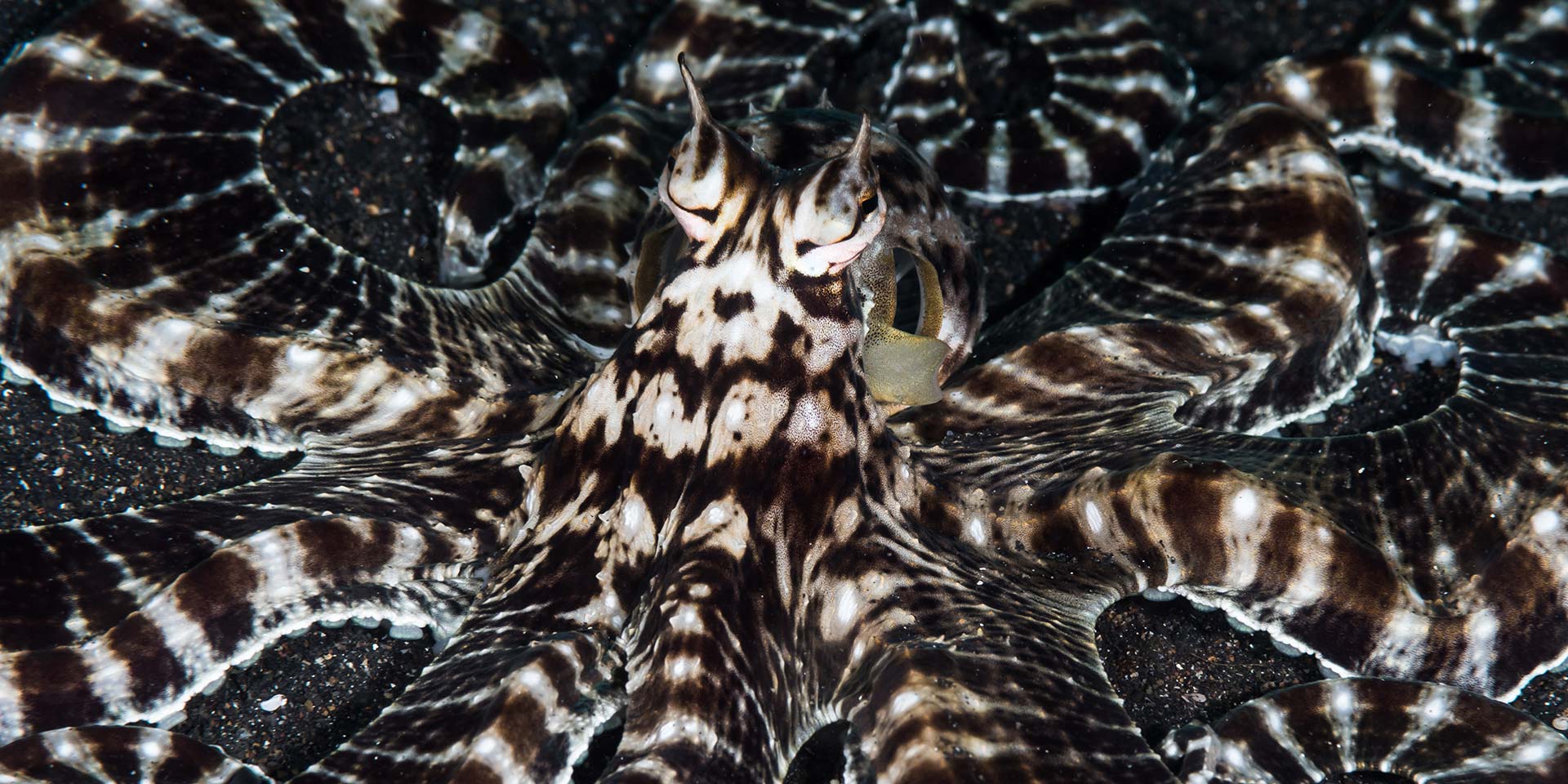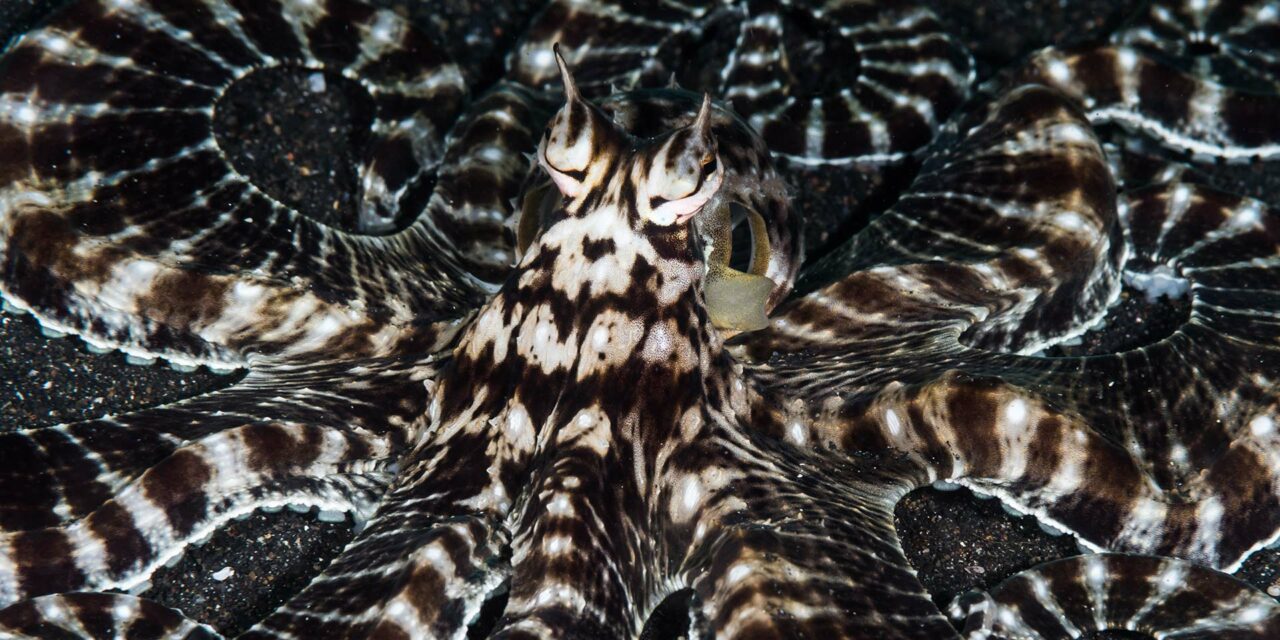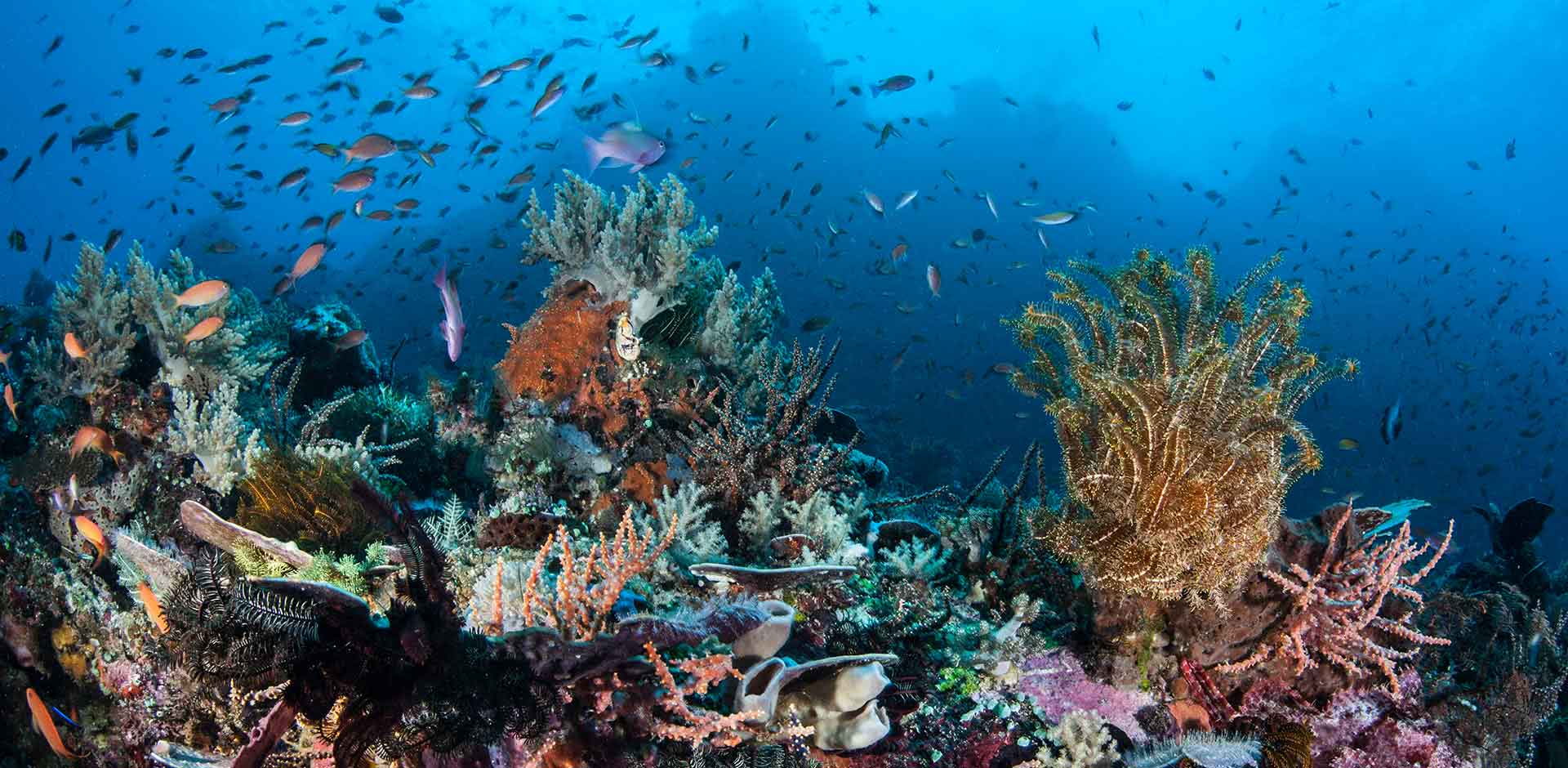Sulawesi is an odd-shaped island at the juncture of the Celebes, Java, and Banda seas, and with Manado as its main airport, Northern Sulawesi is a growing destination for intrepid divers who want off the normal tourist trail.
From here travelers can explore destinations like the natural beauty above and below the water of Bunaken, the black sand beaches of Malalayang, and the volcanoes of Tomohon, Mount Mahawu, and Mount Lokon. For diving enthusiasts who like to get down in the muck, Lembeh is not far away.
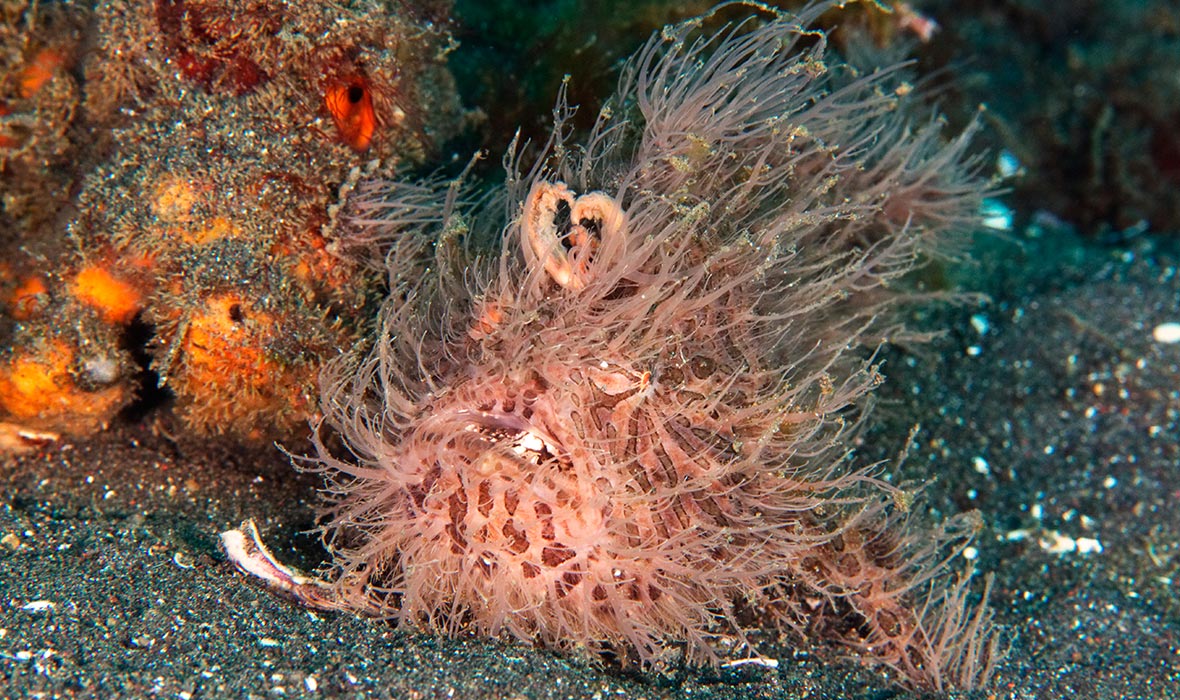
ABOVE: Hairy frogfish off Lembeh.
Manado it is the gateway to Lembeh Resort and the Lembeh Straight, the so-called “Capital of Muck Diving.”
Muck diving is really just that: diving in the muck. Why in heaven’s name would anyone want to do that when there are world-famous coral reefs and clear, blue water not too far away? Each and every dive is like a bit of a treasure hunt – a possibility to see something you haven’t seen before.
Muck diving is usually conducted in areas with sandy, often volcanic, bottoms. At first glance these dive sites might look deceptively desolate and uninhabited but with the right eye, travelers will find areas teeming with as much life as a reef.
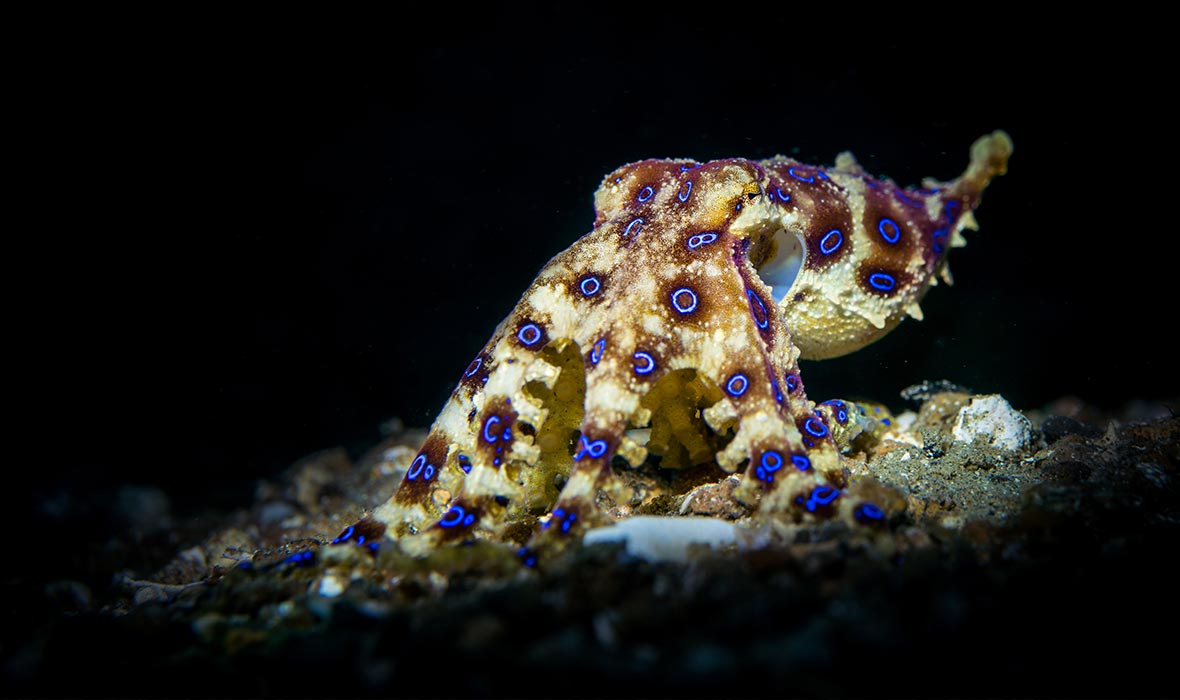
ABOVE: Blue-ringed octopus.
While diving in Lembeh you can spot rare and unique critters that you couldn’t find diving elsewhere in the world. What makes Lembeh different for muck diving is that many of these rare creatures are concentrated in one area. To add to the uniqueness of the dives in Lembeh, divers will find themselves drifting over a dark, nearly black bottom. The sand in Lembeh, like Malalayang Beach, is pitch black.
“The dives aren’t deep, on average around 20 meters, giving the chance […] to have long and relax[ed] dives,” says Florent Horn, a diving instructor who worked in Lembeh for two years, describing the dives as, “mostly made of gentle black sand slopes.”
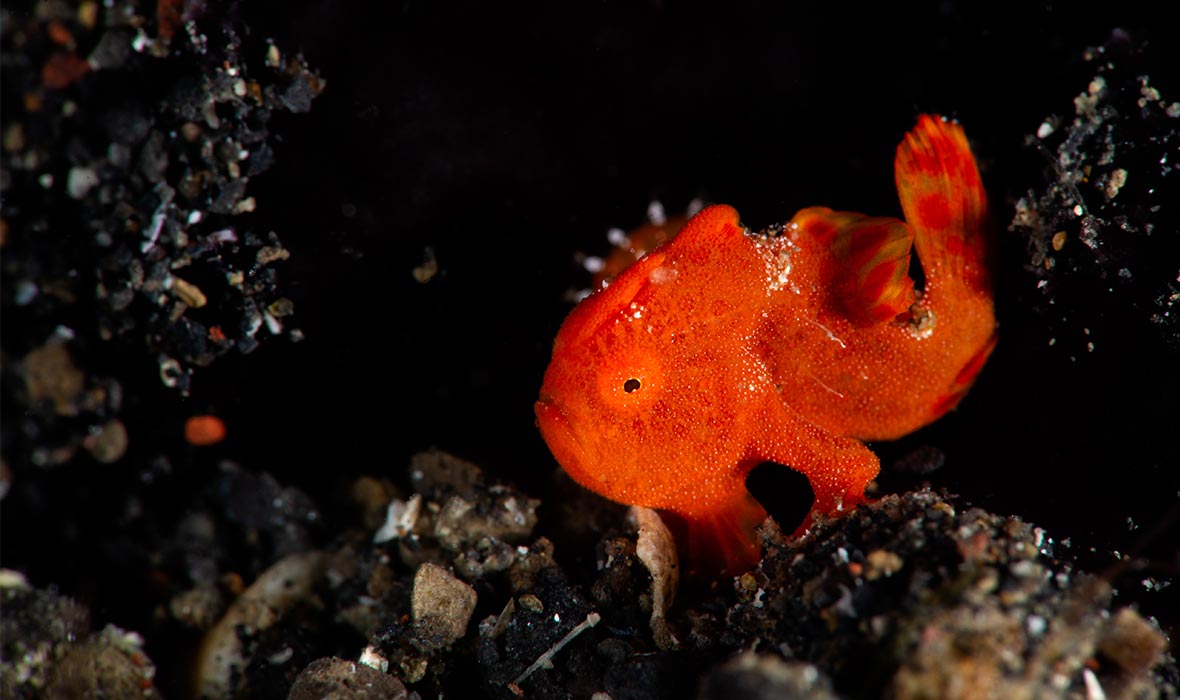
ABOVE: Orange juvenile frogfish walking on the black sand in Lembeh.
The visibility at the muck dive sites is a bit less than one would expect from diving in Indonesia (between 10 to 15 meters on average) due to the sensitive bottom composition. However these sites are mostly protected, with little to no current, creating excellent conditions to spend some time hovering near and observing the unique creatures.
Lembeh isn’t entirely off the tourist trail; there are still some luxury accommodations worth considering. Lembeh Resort is found hidden amongst the flourishing tropical vegetation on Lembeh Island east of the strait. It rests high up on the cliffs overlooking the ocean and a horizon scattered with small islets. Although the resort offers guided nature and village walks and relaxing massages at their in-house spa, the main attraction to Lembeh is the muck diving.
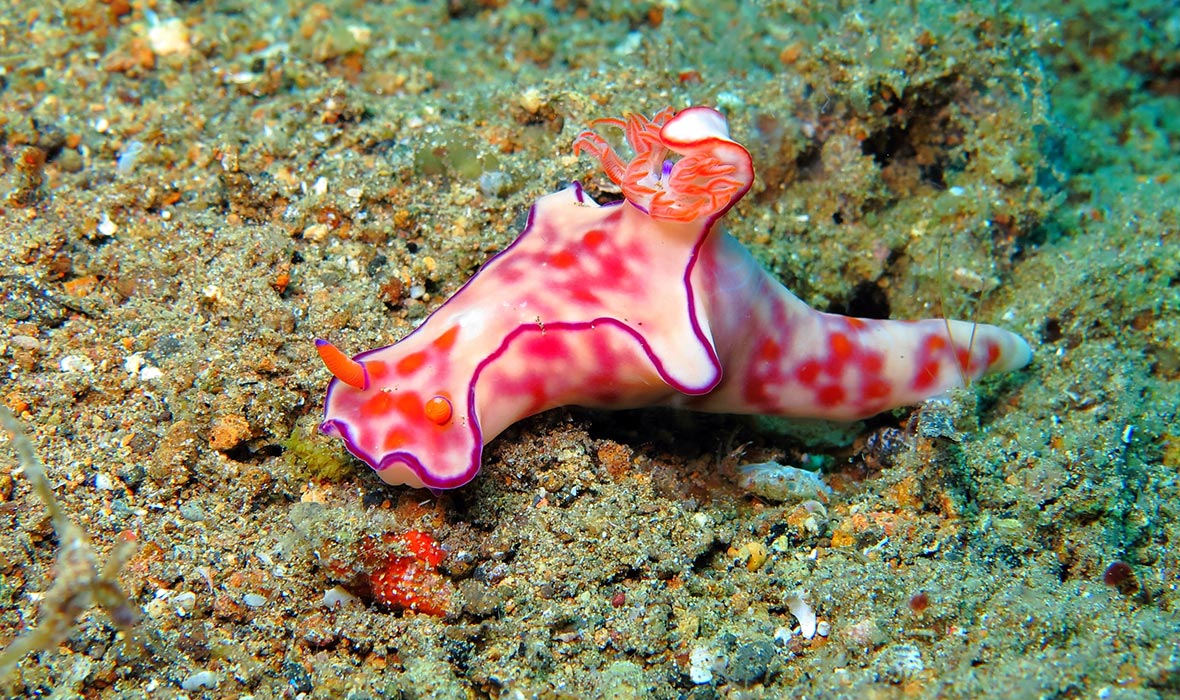
ABOVE: Nudibranch in Lembeh.
To date the marine biologists at Lembeh Resort have recorded nearly 700 unique creatures on their critter log. The dive sites in the area are home to eight different species of frogfish, including the furry-looking Hairy frog fish. Wonderpus, mimic octopus and the highly poisonous blue-ring octopus are included in the 12 species of octopodes found on the dive sites of Lembeh strait.
Seahorses and pipefish abound in the area with three species of pygmy seahorses and numerous pipe fish, including the intricate and ornate ghost pipe fish. The area is also home to the indigenous Lembeh sea dragon.
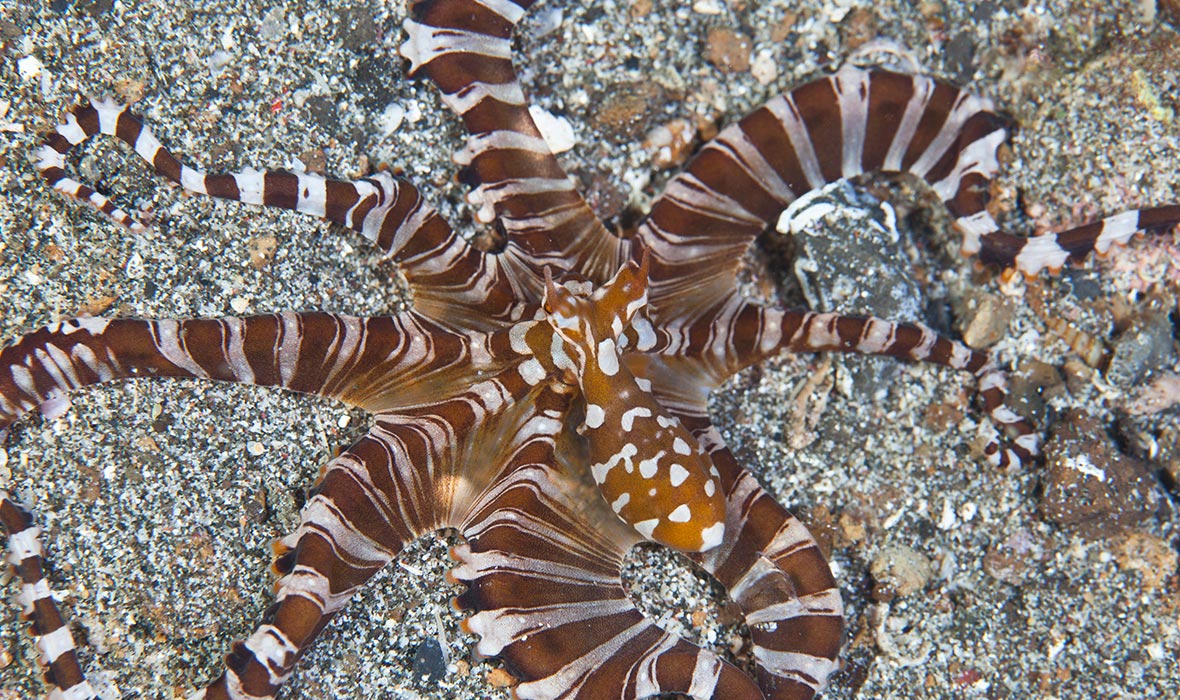
ABOVE: Wunderpus in Lembeh.
The dive site Nudi Falls, also known as Nudi Retreat, lives up to its name. A large variety of nudibranchs, including the squishy-looking sea hare, can be found on the coral bommies, walls, and slopes of this site. Flamboyant cuttlefish, sea moths, and a variety of shrimp are also hidden among the black sand and coral. This is also one of the best dive sites for night dives (conditions permitting).
To add to all the unique diving of Lembeh, there is also the opportunity to see mating Mandarin Fish, which engage in a fascinating mating dance, usually around sunset. As the sun is setting in the sky, underwater a female Mandarin fish approaches a larger male and rests on the pelvic fin of the male; then, the two place their bellies against each other and ascend about a meter off the bottom to release sperm and eggs into the water.
With its black, sandy bottoms, Lembeh doesn’t quite fit into the clichéd image of a tropical beach paradise. This is exactly the reason why the diving in the Lembeh strait is so unique.

